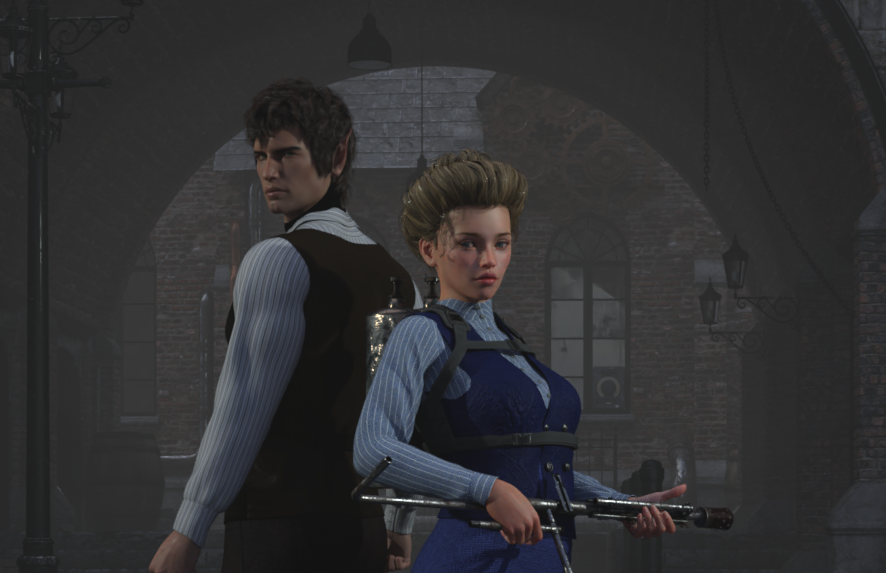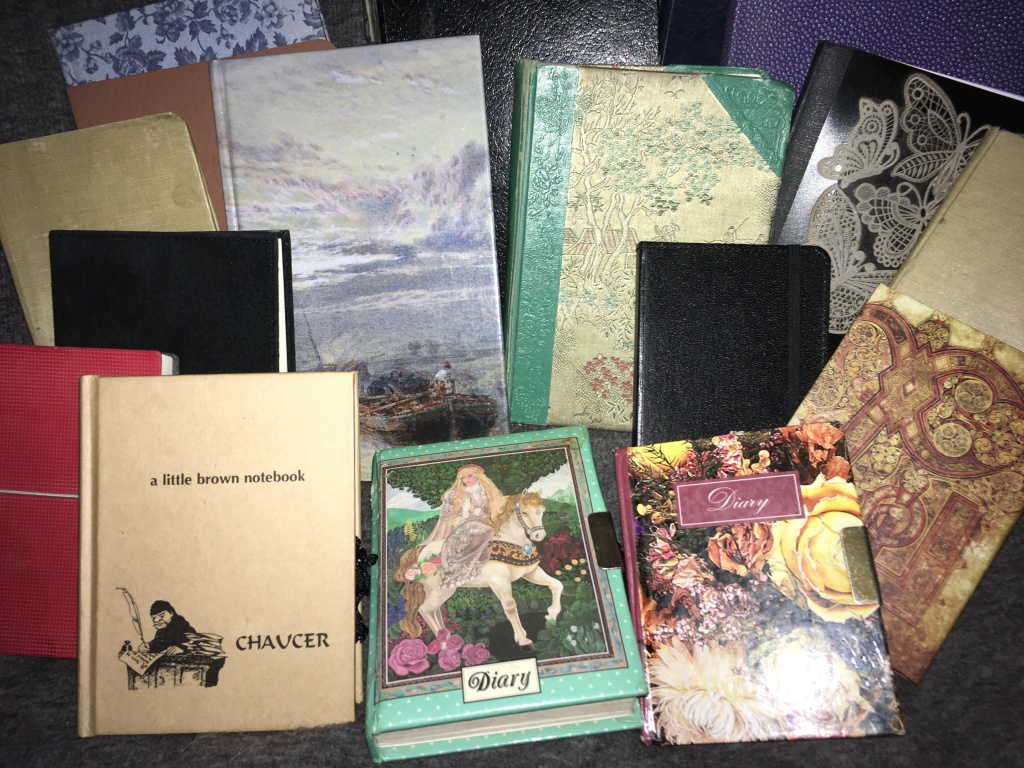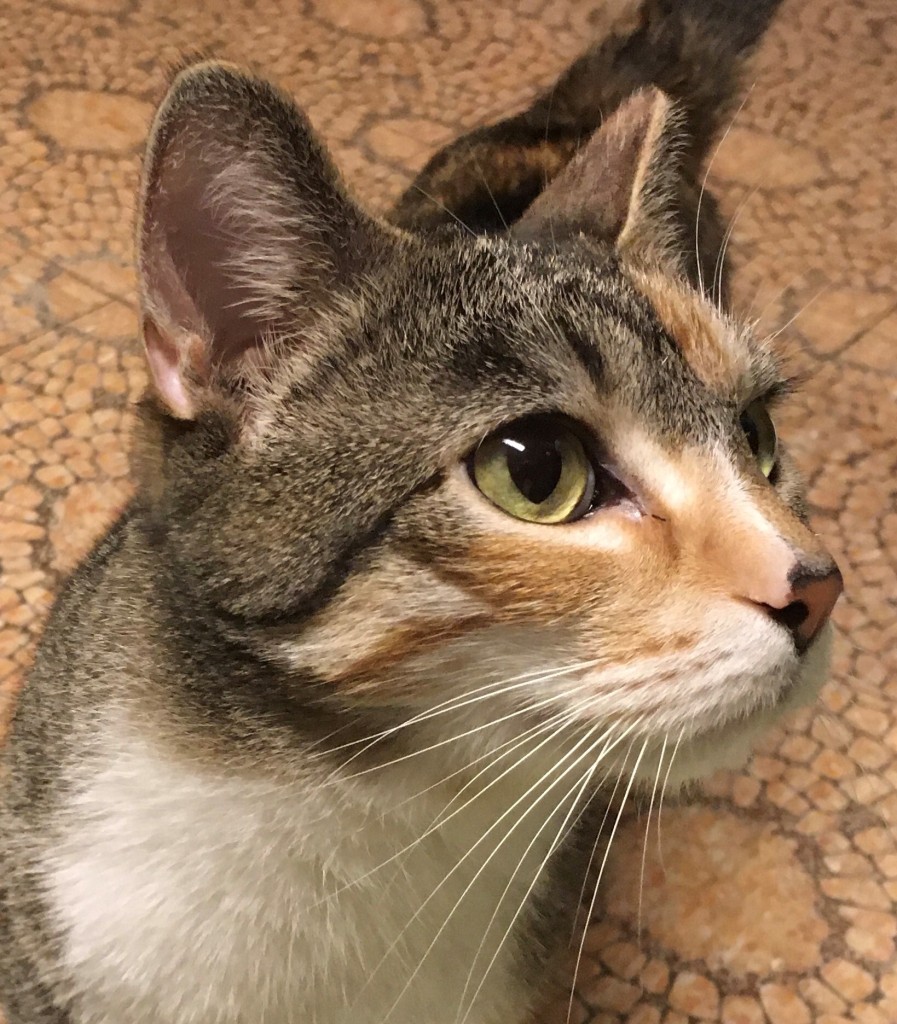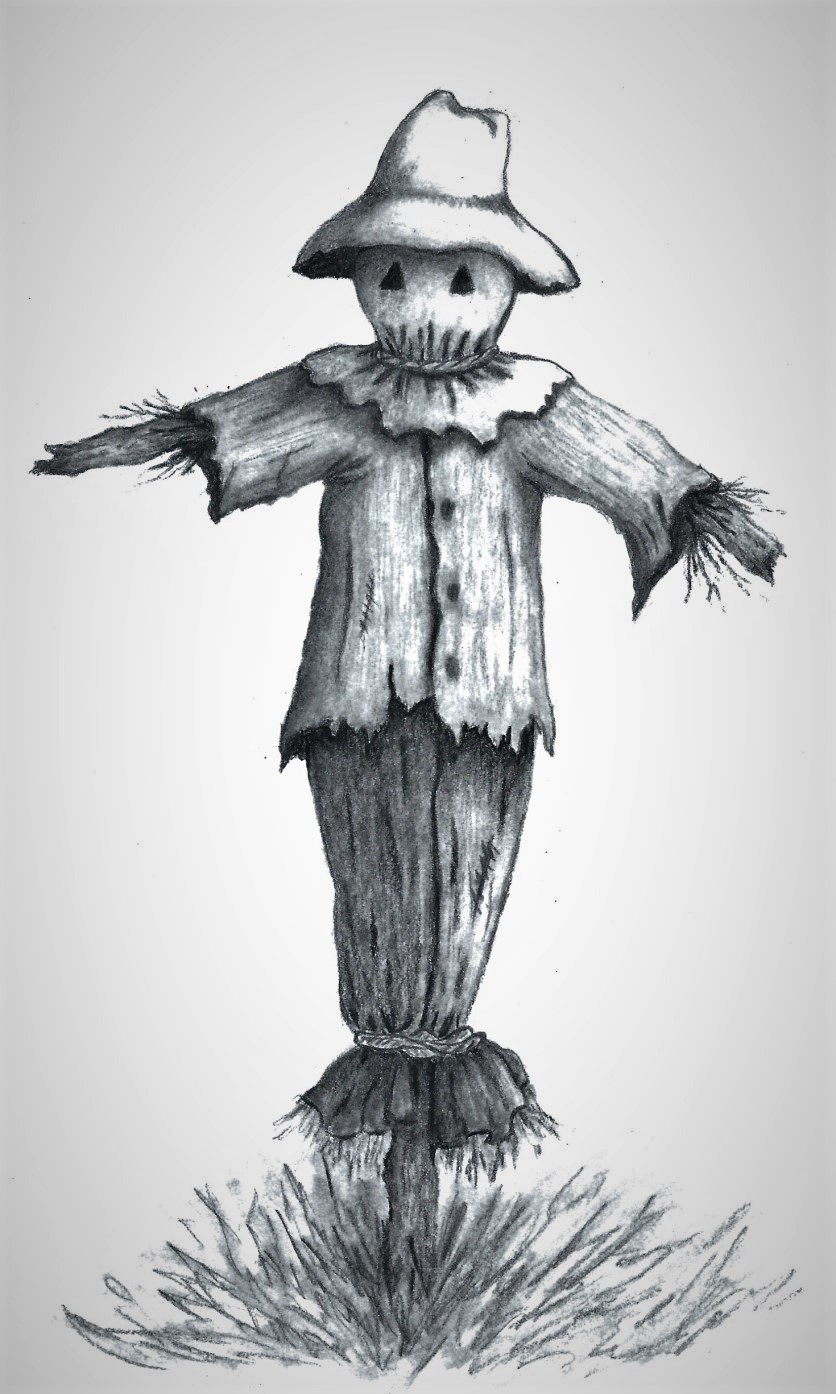We try to touch our toes to stars.
Chains anchor one swing set, and our toes only reach as high as the kitchen window. The frame rocks, pulling free as though about to tip over at the peak of our swinging arc, then slamming down with a clanking thunk. We choose the other swing frame, steel set in concrete buried in the ground.
We climb the smooth poles and hang by our knees from the top bar. We giggle at the upside-down world, not realizing yet how much the world is already upside-down. Not yet understanding behavior is taught but virtue is instilled. Our friends hone virtue better than memorizing rules.
Some aerialist cue warns just before the headward rush of blood turns to ache. Sweaty in summer swelter, we slip and shinny down chains to the swing seats. In daylight, we grip the chains and stand on the seats, sometimes lifting our feet from them. Pretending, pretending because no big top is bigger than the bright blue overhead.
Pretense changes to challenge at and after twilight. The first swinging high enough to touch toes to stars and call out Twinkle-toes! wins.
Play fair, play honest—the award doesn’t matter. Maybe the winner won’t be the first it in flashlight tag later. Maybe winning means dibs on the last good cookies, the ones our moms bake rather than the store-bought ones. Maybe it’s just a win. Pick another star, start again, swinging back and forth, passing wins back and forth, striving for stars to the metallic rhythm of creaking chains.
Would we like to swing on a star? You betcha!
But for now, for years ahead, touching toes to stars a handspan high above horizon suffices.
~*~
She doesn’t sail at night anymore. The old dory looks as age-roughened as she does, but it’s no less sea-worthy. Over decades, night has become a time of resting muscles and bones no longer so hardy and hearty. A time of watchful contemplation on the shore.
She has sea regrets, some fanciful, some real, but not many of either. She would’ve circumnavigated oceans solo with only stars to guide her. Sang with mermaids or ridden Poseidon’s chariot. Learned the languages at every seaport. Seen the green flash from every sea, from any sea.
The last, at least, is still within possibility.
The driftwood serving as walking stick took polishing well, but she never had the heart to carve more than a comfortable grip. The silvery, twisted grain matches her loosely braided hair, catching highlights under sun, under moon.
She dusted her surfboard today. She tried to remember the last time she wrestled it from the wall for waxing. Neither kook nor ripping slash-master, she knows her skills were modest. She never braved the gnarliest waves or rode the board through a barrel—another regret. She traced her fingers over white constellations painted against ultramarine blue. Aloud, she spoke their names, their stories as she outlined their shapes.
Even now, as she hobbles from her cottage, she smiles: she surfed standing on the shoulders of Hercules.
Farther along the shore, sand gives way to rock. She often tosses stranded starfish back to the surf or collects the dead she finds in dried tidepools. She loves the quietly busy activity there, but she’ll not ramble that far this eve. The closer stretch of beach, still warm enough to soothe, satisfies.
She passes the dory moored just above the high tideline. The hull should be scraped, revarnished; the dulled brightwork could stand attention. Some of the sail’s seams need restitched before she launches to sea again. These days, she dreads the sewing more than the labor on the dory’s wood and metal. Her eyesight is fine for anything but threading a needle.
Little breeze rolls in from the shining sea. Reflecting the red sailors’ delight of the sky. Reflecting the sinking sun’s ripe apricot glow. Reflecting the dory would lie becalmed on such waters until a freshening wind filled the sail. Reflecting on how often she’s waited becalmed on the shore for a glimpse of the green flash.
On the horizon, the crimson disc of the sun sinks, sinks. She stares, not daring to blink.
Now a thumbnail, a hairline. Now winked out, gone.
Exhalation. Explanation. Resignation.
Perhaps the air is too clear, too calm. No prismatic haze divides the day’s last sunlight for a flash of green.
Perhaps another evening, then.
She builds a small beach-fire. Her contralto isn’t as true as it once was, but songs of sea and stars, of love and adventure, lift her spirit when it ebbs.
Twilight darkens to dusk; dusk darkens to night. Pinpoints of light quiver on the glassy sea. Constellations form on the waters, then she gazes up to their source. She digs her toes in the warm and twinkling sand.
~*~
Night after night, year after year, I gaze at stars. They glint like chips of light-struck ice, fresh and cold in the skyscape. They are clock and anchor, compass and almanac. They are pattern and poetry. They are legend.
Magnitude, lightspeed, azimuth, parsec, aphelion, perigee. Astronomy borrows and provides the words and formulae for stargazing, but science never diminishes their mystery.
The scent of new mown grass envelopes me. My star chart glows in the dark and points the way to Lyra, Vega, Draco, Aquila. Cepheus rules near the throne of his queen; Boötes herds the stars by the Northern Crown. Hercules is high overhead. The great bear ambles slowly around the smaller bear.
The life of a transient means taking little for granted. Necessities and detritus carried from place to place may be lost or broken in transit. The people met get on with their lives, forgetting someone was present and now is gone.
Stars move, but they return. A multitude of constants shining on an inconstant world.
Another month, another place. A short way from my campsite, I sit on a low bank of the broad, braided tributary of the Platte River. I clutch my campfire-fragrant coat close against the chill. At the end of Ursa Minor’s tail, Polaris— North star, pole star, Cynosūra, lodestar, stella maris, sea-star—is a fixed constant, orienting me on land even as I stare skyward. Pegasus charges across the night sky, accompanied by ram and goat. The great swan soars into the west.
Another transit. My younger sister has a first-grade project about constellations. We spread a quilt on the ground, wrap blankets around our shoulders. Autumnal cool arrived in the Midwest early this year; the late September night seems unseasonably crisp. Some of the trees already dropped leaves. Others are turning colors, shedding more slowly.
Her head leaning on my breast, she looks along my arm as I point out the Big Dipper, then the Little Dipper. A naked ash tree obscures most of Aquila, but we spy the eagle’s brilliant Altair hovering near an upright branch. I tell her we can make the star disappear and reappear.
Oh huh! (Cynicism often overrides gullibility in the young.)
Close your right eye—see how bright the star is?
Yeah.
Close both eyes. Whisper Twinkle-toes, then open your left eye.
Twinka-toes. (A pause.) Oooooh!
Do it again, but open your right eye.
Twinka-toes. (Another pause.) Oooooh!
Leaves falling from the poplar windbreak rustle and patter. The breeze stirs drying, dying odors from the field stubble beyond the fencerow. She repeats the incantation. Once more, Altair vanishes behind the ash branch, then returns with each parallax shift.
For one evening, my sister thinks we’re magic.
~*~
The man doesn’t think she dreams of stars. When she was a puppy, the older dog showed her angels. Not so much the guardians and messengers of light, though she probably sees them, too.
No, she watches angels of nature, elementals in camouflage. They tend the seasonal cycles: vernal equinox, summer solstice, autumnal equinox, winter solstice. They signal migratory timing for bird and beast. They crack hulls and husks of seeds in the darkness under the dirt, urge the dormant to new growth. They show worms the way to cooler depths when summer sun heats the soil. They flutter wings of fallen leaves, dance en masse disguised as snowflakes.
The Labrador half of her ancestry alerts her to geese in formation overhead, but the back and forth calls of owls disturb her shepherd half. She presses her furry shoulder to his leg. Her head tilts up to nose his hand. She doesn’t understand why he still stares at the sky. The geese are gone.
Meteor showers—Leonid, Perseid, Orionid—mean nothing to her. There is no sound, there is no scent. The swift strobes are too distant for her sight, but the angelic display isn’t done for her eyes or for his. Flashing across the skyscape, the diamantine trails proclaim destruction and renewal in another form.
Later, she curls beside him on the couch. Her feet twitch and paddle as she sleeps, but she doesn’t dream of touching her toes to stars. She dreams of hooting owls, of honking geese, of angels masquerading among moths or milkweed down.
Perhaps, though, if stars glimmer in her slumber at all, she dreams of chasing squirrels or rabbits, hunting side by side with Procyon and Sirius whose twinkling toes are stars.
~*~
Night after night, year after year, you gaze at stars. You wonder.
Do you remember driving along a high plains highway at night? Through the windshield, a cloud shone as though reflecting the lights of a thousand cities. You slowed, then parked roadside. No atmospheric haze hung in the clear darkness. The Milky Way’s magnificence washed unfading awe over you, imprinting you forever.
Strange to think the sun is the closest star. Other stars divide the days and nights of their nearby planets the way old Sol lights this solar system, this Earth. Strange to ponder how this sun might appear if you stargazed from the crystalline shore or turquoise steppe of a distant world. Would you even notice a single star, a sun, in the lesser spur of the Orion-Cygnus Arm? How insignificant it seems amid the longer spiral arms of the Milky Way. Yet this star is life for Earth. Is it any wonder ancients worshipped the sky’s yellow dwarf? The impersonal master of seasons personally validates existence and solidity with shadow-stamps on soil, sand, and snow.
You used to look for your shadow by starlight. Their light is far, faint, but that doesn’t mean there’s no shadow cast. The ground is too dark to discern such dim and indistinct shade, but with so many stars scattered, shedding illumination crisscrossed across the sky, they may cancel each other’s light. Still, the palest stellar clusters don’t seem strong enough to nullify shadows cast by the brightest stars. Perhaps you need only stand on purest white to see your starlight shadow.
When you wish upon a twinkle, twinkle little star light, star bright, would you like to catch a falling star? Do you want to swing on a star, or do you hope for a pocketful of starlight? On a starry, starry night, does Mariah blow the stars around? Would she be wind or whirlwind stirring the galaxy’s spiraling arms?
Per ardua ad astra. Through hardship to the stars. Hardship for those who lost the sense of marvel and miracle to scholarship. You attain the stars in the way children of all ages do.
You climb the jungle gym of Cassiopeia’s Throne, cross the monkey bars of Orion’s belt. Your aerial silk flutters in cosmic wind as you angel-spin from the stinger of Scorpius in synch with the throbbing heart of red Antares. You launch from wing-to-wing trapeze as Cygnus soars the night. With a grand jeté, you leap from the horns of Taurus for an Aldebaran pirouette en pointe. You jazz with the Pleiades sisters.
You play and dance and frolic with stars. Pretending, pretending. Shout out Twinkle-toes! to win.
*****
“Starlight Through Five Apertures” by Glynda Francis first appeared in The Tishman Review, Vol. 4, July 2018.





